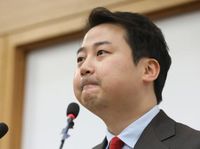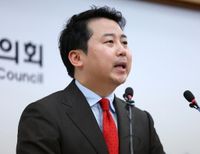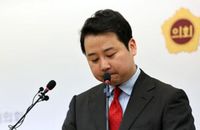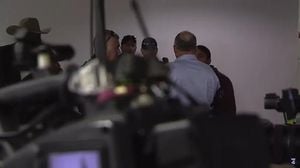In a significant legal ruling, Jang Yeo-chan, a former Supreme Council member of the People Power Party, has been fined 1.5 million won for violating the Public Official Election Act. This decision, handed down by the Busan District Court's Eastern Branch, comes after Jang's controversial candidacy in the Suyoung-gu district during the April 2024 general election, where he ultimately failed to secure a seat.
According to Yonhap News, the court found that Jang had misrepresented his academic credentials during his candidate registration. He claimed to have attended the "Netherlands Master HIIT National Music University Music Department (2008.9~2009.8)," but the court determined that he actually dropped out from the music department at "JUID Applied Science University." This institution, while located in the Master HIIT area, is a practical university and has no affiliation with the research-oriented Master HIIT University.
Jang's defense argued that the music school was commonly referred to as "Master HIIT National Music University" and that he had provided a notarized translation of this name during his registration, thus asserting that he did not intend to deceive voters. However, the court rejected this claim, stating that his omission of the formal university name and the misleading presentation of the college could easily confuse voters.
Furthermore, Jang was found guilty of distorting opinion poll results and disseminating misleading promotional materials to voters via social media and text messages just before the election. The opinion polls indicated that Jeong Yeon-wook of the People Power Party was leading with 33.8%, followed closely by Yoo Dong-cheol of the Democratic Party at 33.5%, while Jang had only 27.2%. Despite these figures, Jang promoted himself as the "top candidate in electability" by highlighting an 86.7% support rate from respondents who believed in the electability of their preferred candidate.
The court noted that while the promotional material did include a disclaimer at the bottom stating it was a "Support Layer Electability Survey," the positioning and size of this text were such that it was unlikely voters would notice it. This led the court to conclude that Jang's actions constituted a significant breach of the election law.
Jang has since filed an appeal against the court's decision. Under the Public Official Election Act, if a candidate is fined 1 million won or more, they face a five-year ban from running for office. This ruling raises serious implications for Jang's political future and highlights the ongoing scrutiny of electoral practices in South Korea.
The case has sparked discussions about the integrity of political candidates and the importance of transparency in the electoral process. As South Korea continues to navigate its political landscape, the actions of individuals like Jang Yeo-chan serve as a reminder of the potential consequences of misleading information in elections.
As the appeal process unfolds, observers will be keen to see how this case influences public trust in political figures and the electoral system as a whole. The outcome could set a precedent for how similar cases are handled in the future, emphasizing the need for accountability among candidates.
In a broader context, this incident reflects a growing concern within South Korean society regarding the conduct of public officials and the standards to which they are held. The electorate increasingly demands honesty and integrity from those who seek to represent them, and cases like Jang's may contribute to a shift in expectations for political accountability.
Overall, Jang Yeo-chan's case is a cautionary tale for aspiring politicians about the importance of presenting accurate information and the potential fallout from failing to do so. As the legal proceedings continue, it will be crucial for all parties involved to uphold the principles of fairness and transparency that are vital to a functioning democracy.

![총선 때 ‘허위 학력 기재’ 혐의, 장예찬 1심서 벌금 150만 원 [이런뉴스]](https://thumbor.evrimagaci.org/YsE3YafXnk5iBp8wc8hgy453mF0=/200x0/tpg%2Fsources%2F574f5a6e-841f-4c83-a239-57b2995e2997.jpeg)





